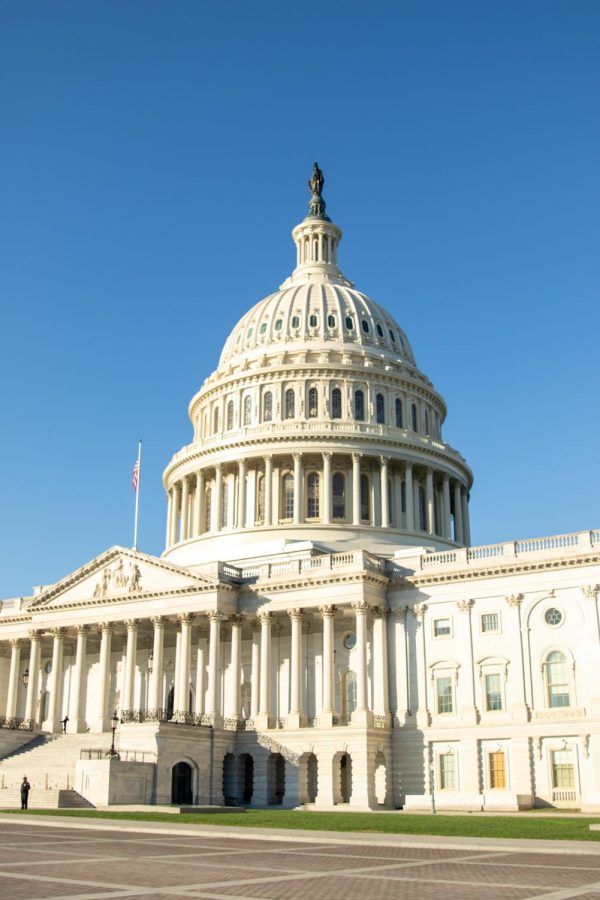Why isn’t the EPA being enforced?
April 13, 2020
On March 26, the Environmental Protection Agency announced it would be relaxing a large number of environmental rules governing the reporting of air pollution by U.S. companies and businesses. This was done in response to numerous businesses requesting some form of relief in light of the current COVID-19 crisis. With this new deregulation, businesses will be allowed to monitor their own releasing of hazardous air pollution without E.P.A. oversight.
When the order came, companies were asked to act responsibly and keep records of how COVID-19 restrictions forced them from complying with the eased regulations. Additionally, fines for certain air, water and hazardous waste requirements will not be issued. There’s no clear timeline for how long businesses will be allowed to do this.
As could be predicted, voices of opposition and support were immediate and strong. Former E.P.A. head and current CEO of the Natural Resources Defense Council Gina McCarthy was strongly opposed to the new deregulation.
“This is an open license to pollute — plain and simple,” McCarthy said. “The administration should be giving its all toward making our country healthier right now. Instead, it is taking advantage of an unprecedented public health crisis to do favors for polluters that threaten public health.”
Many are arguing this current policy will undermine current efforts to promote health in the midst of a pandemic and set a harmful precedent for the future.
On the other side of the debate are those defending the move. Their argument is that the current blows the economy is suffering warrant some form of relaxation for businesses already under economic pressure to stay afloat.
Granta Nakayama, who served in the E.P.A. office during George W. Bush’s administration, contradicted McCarthy’s statement that it’s an “open license to pollute” and said the current circumstances warrant a different form of guidance.
“It’s a very straightforward and sensible, in my view, guidance,” Nakayama said.
E.P.A. spokeswoman Andrea Woods also defended the policy, stating, “It is not a nationwide waiver of environmental rules … For situations outside of routine monitoring and reporting, the agency has reserved its authorities and will take the pandemic into account on a case-by-case basis.”
Limiting the E.P.A. isn’t the only current environmental change, however. On March 31, President Trump announced that his administration would be rolling back a 2012 Obama-era fuel economy standard requiring all automakers to average 54 miles per gallon for all commercial vehicles by 2025. President Trump’s new policy will now require cars to average an extremely easy target of only 40 mpg.
This change will lead to almost one billion more tons of carbon dioxide being pumped into the air by vehicles and 80 billion more gallons of gasoline being consumed. Many opposed to this change have pointed out that these economic costs are likely to take a toll on human life; some estimate that several hundred could die annually as a result of the additional pollutants in the air.
In defense of this move, President Trump tweeted, “Engines would run smoother. Positive impact on the environment! Foolish executives!”
At least 20 states are expected to sue the Trump administration over this new deregulation as voices of opposition from all ends of the political spectrum are voicing their fears.
Both of these deregulation examples, one in response to COVID-19 and another seemingly made independent of the virus’ threat, are concerning enough in and of themselves. However, President Trump’s history of reversing environmental regulations paints a picture of an aggressive, systemic rollback of Obama-era environmental policies. One recent study found that 58 policies have been completely reversed and 37 are in the process of being reversed for a grand total of 95 environmental policies rolled back.
Taken individually, many of these changes may be understandable and significantly beneficial to the economy with little cost to the environment. Temporarily waiving fines for companies currently struggling to survive COVID-19 may be an overall helpful policy by itself, but President Trump’s history clearly illustrates that this isn’t just an isolated effort to stimulate the economy with regrettable but necessary costs to the environment. It’s clear that the priorities of the current administration are economic and political, not environmental. Repealing policies by Obama, whatever they are, is consistently met with approval from Trump’s base, so it’s rather difficult to ignore the political aspect of these policy reversals.
President Ronald Reagan once stated that the “preservation of our environment is not a liberal or conservative challenge; it’s common sense.” It’s a shame, however, that something so universally impactful as protecting Planet Earth has become a partisan issue. Instead of using this current crisis to create more harm to public health, the current administration might consider giving the planet a break.











